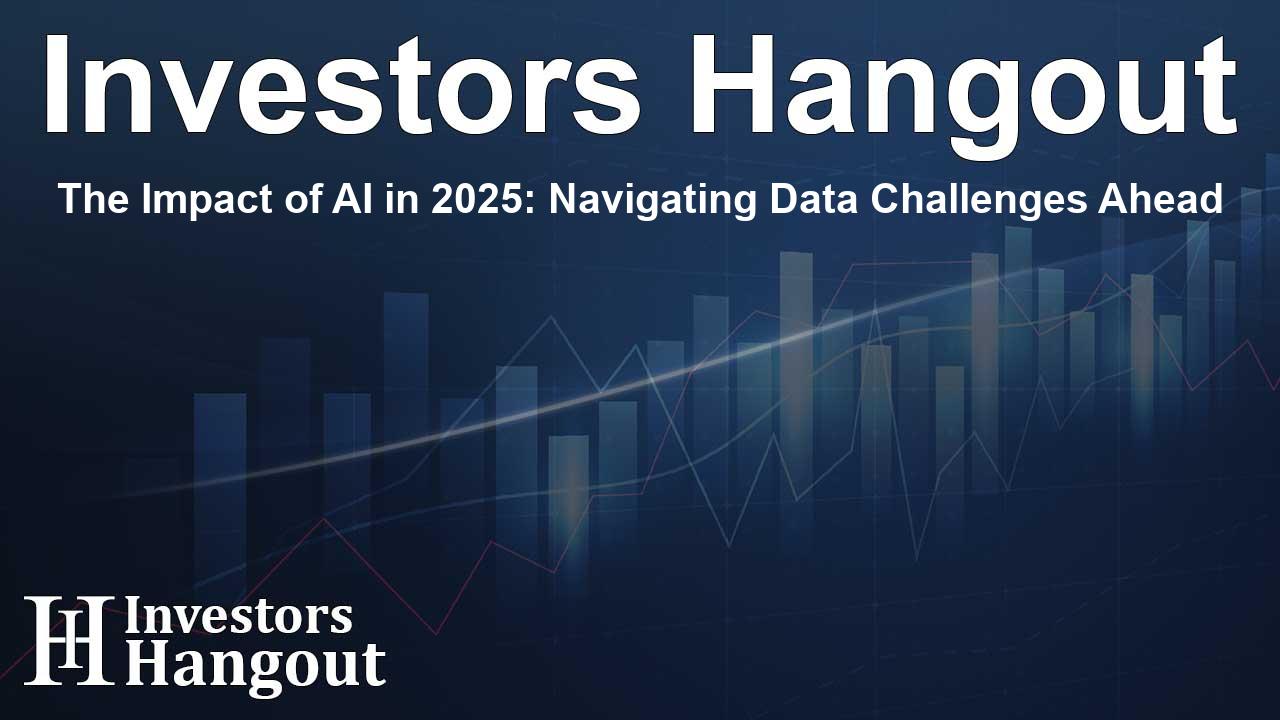The Impact of AI in 2025: Navigating Data Challenges Ahead

Understanding the Future of AI Through Data Complexity
In an evolving technological landscape, organizations are increasingly turning to artificial intelligence (AI) to enhance efficiency and innovation. According to the latest insights shared by NetApp (NASDAQ: NTAP), the intelligent data infrastructure company, we are on the brink of a pivotal shift in 2025 that could define how businesses harness AI. Their recent Data Complexity Report reveals that as companies navigate their AI journeys, the complexity of data management becomes a critical concern.
AI Adoption: The Need for Unified Data Management
The 2024 Data Complexity Report illustrates that a significant portion of companies, about two-thirds globally, have begun optimizing their data for AI. This means that their data is not only accessible and accurate but also adequately documented for AI application. Nevertheless, there remains a pressing need for further investment in data management strategies to truly unlock AI's potential. A considerable 40% of tech executives anticipate a sharp increase in investment in the coming years, underlining the necessity to overcome existing data management challenges.
Addressing Data Silos for AI Success
Data silos pose a substantial risk to the success of AI initiatives. The report reveals that 79% of global tech leaders recognize the necessity of unifying data to achieve effective AI results. This unified approach enables organizations to connect data from various sources, regardless of type or location, ensuring accessibility across multicloud environments. Companies focused on data unification are set to gain a competitive edge, with significantly higher chances of meeting their AI objectives compared to those that neglect this strategy.
Cybersecurity: Safeguarding Against Emerging Threats
As organizations ramp up their AI capabilities, they also face heightened cybersecurity threats. The report highlights that 41% of tech executives expect a rise in security incidents alongside AI adoption. Countries leading in AI technology report almost double the security challenges faced by those lagging in AI proficiency. This shift amplifies the need for robust security frameworks, with 38% of executives prioritizing cybersecurity and ransomware protection as essential components of their AI strategy.
Balancing AI Growth and Environmental Impact
The rapid adoption of AI brings forth environmental concerns. With 34% of executives anticipating major shifts in corporate sustainability practices due to AI, the balance between technological growth and environmental responsibility becomes crucial. The report stresses the importance of reducing carbon footprints, a priority that has grown less urgent over the years, possibly due to the mounting energy demands of AI infrastructure.
Investing in Intelligent Infrastructure
The Data Complexity Report underscores a fundamental shift in business strategy: organizations that prioritize intelligent data infrastructure will not only future-proof their operations but also maintain a competitive advantage. Companies that invest in scalable and secure data strategies are better positioned to navigate the complexities that AI introduces, ensuring resilience in an increasingly data-driven world.
Conclusion: The Path Forward for Organizations
As Gabie Boko, Chief Marketing Officer at NetApp, points out, the future of AI hinges on a delicate balance of investment in technology, security measures, and sustainability practices. By understanding the dynamics of data complexity and prioritizing intelligent data infrastructure, organizations can fully unleash the transformative power of AI, driving innovation while navigating the associated risks and complexities.
Frequently Asked Questions
What is NetApp's Data Complexity Report about?
The report examines how organizations manage data complexities while adopting AI, offering insights for future strategies.
Why is data unification critical for AI?
Data unification allows organizations to access and utilize data across multiple platforms, enhancing the effectiveness of AI initiatives.
How do cybersecurity threats relate to AI adoption?
As AI grows, the surface area for potential cyber attacks increases, creating new security challenges for organizations.
What are the sustainability concerns with AI?
AI's energy consumption poses challenges to sustainability goals, making it essential for companies to find a balance in their practices.
How can organizations prepare for AI in 2025?
Investing in intelligent data infrastructure, focusing on cybersecurity, and prioritizing data management are key strategies for preparation.
About The Author
Contact Caleb Price privately here. Or send an email with ATTN: Caleb Price as the subject to contact@investorshangout.com.
About Investors Hangout
Investors Hangout is a leading online stock forum for financial discussion and learning, offering a wide range of free tools and resources. It draws in traders of all levels, who exchange market knowledge, investigate trading tactics, and keep an eye on industry developments in real time. Featuring financial articles, stock message boards, quotes, charts, company profiles, and live news updates. Through cooperative learning and a wealth of informational resources, it helps users from novices creating their first portfolios to experts honing their techniques. Join Investors Hangout today: https://investorshangout.com/
The content of this article is based on factual, publicly available information and does not represent legal, financial, or investment advice. Investors Hangout does not offer financial advice, and the author is not a licensed financial advisor. Consult a qualified advisor before making any financial or investment decisions based on this article. This article should not be considered advice to purchase, sell, or hold any securities or other investments. If any of the material provided here is inaccurate, please contact us for corrections.
